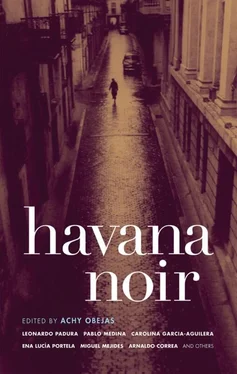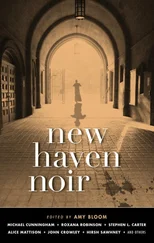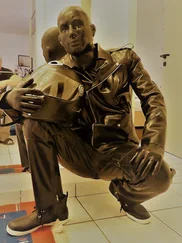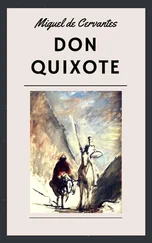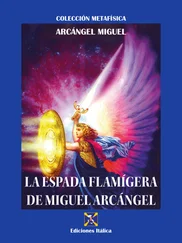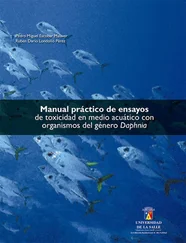Miguel Mejides - Havana Noir
Здесь есть возможность читать онлайн «Miguel Mejides - Havana Noir» весь текст электронной книги совершенно бесплатно (целиком полную версию без сокращений). В некоторых случаях можно слушать аудио, скачать через торрент в формате fb2 и присутствует краткое содержание. Город: New York, Год выпуска: 2007, ISBN: 2007, Издательство: Akashic Books, Жанр: Детектив, на английском языке. Описание произведения, (предисловие) а так же отзывы посетителей доступны на портале библиотеки ЛибКат.
- Название:Havana Noir
- Автор:
- Издательство:Akashic Books
- Жанр:
- Год:2007
- Город:New York
- ISBN:978-1-933354-38-5
- Рейтинг книги:4 / 5. Голосов: 1
-
Избранное:Добавить в избранное
- Отзывы:
-
Ваша оценка:
- 80
- 1
- 2
- 3
- 4
- 5
Havana Noir: краткое содержание, описание и аннотация
Предлагаем к чтению аннотацию, описание, краткое содержание или предисловие (зависит от того, что написал сам автор книги «Havana Noir»). Если вы не нашли необходимую информацию о книге — напишите в комментариях, мы постараемся отыскать её.
, authors uncover crimes of violence and loveless sex, of mental cruelty and greed, of self-preservation and collective hysteria, in a city characterized by ironic and wrenching contradictions.
Havana Noir — читать онлайн бесплатно полную книгу (весь текст) целиком
Ниже представлен текст книги, разбитый по страницам. Система сохранения места последней прочитанной страницы, позволяет с удобством читать онлайн бесплатно книгу «Havana Noir», без необходимости каждый раз заново искать на чём Вы остановились. Поставьте закладку, и сможете в любой момент перейти на страницу, на которой закончили чтение.
Интервал:
Закладка:
Eladio jumped back as if the pictures he had slipped in his pocket earlier that day were burning a hole. “Yes, señora, I know those pictures,” he mumbled.
María Eugenia looked so happy, so pleased with herself, that now Eladio felt suicidal. For a fleeting moment he wondered if it was possible to wring his own neck.
“I decided,” she said, “that since Luis and his three friends were great fishermen, why couldn’t they fish for the seafood for the dinner themselves? I know it’s against the law for Cubans to fish for lobster, crab, and shrimp — but, Eladio, they know the waters around the coast of Havana like they know the backs of their hands. After all, that’s where they used to fish!
They would be too smart to get caught!” María Eugenia was so thrilled with her solution to the dilemma of what to serve for the dinner that she was beside herself with joy. “Don’t you see, Eladio? Fishing for the meal is the perfect answer! They would feel young, happy, and resourceful! They could drink the rum you make — just like in the photos!”
“But, Señora María Eugenia, what about your ring? You said you sold it for the dinner. I don’t understand.”
“Oh, Eladio, you’re right — I’m sorry — I forgot to tell you the most important thing!” María Eugenia seemed years younger as she almost sprinted away. “I sold the ring and bought a small boat with the money — I went to the pier by the old Yacht Club, you remember, where the señore s used to row? Luis told me there were old boats for sale there. I traded the ring for one of the boats, not a very big or fancy one, but it won’t sink — I made sure of that. It needs some work, but it’ll do!” María Eugenia placed the photo album on a table and began to walk away, the smile on her face making her look like the young girl Luis had married forty years before. “It’s the Special Period, you know, Eladio, everyone wants and needs something — everything anyone has is for sale — so it wasn’t very difficult to buy. And now all our problems are solved! The dinner — with seafood — will take place... I’m going to find Luis and tell him not to worry anymore.” She turned to Eladio. “Where is he?”
He couldn’t answer. He only could shake his head as she walked past.
He didn’t follow. Instead, he took his seat again in Luis’s chair, knotting and unknotting his hands. She would find his body. It was better that way, because if he spoke, she would know he was lying.
But there was one more thing he would do for his employer of more than forty years. He would push out to sea in the little boat, dive for crab and lobsters, haul a net for shrimp until he had found all he needed and more. Then he would serve that dinner, and he would make it a feast. The three friends would eat his catch and drink his rum — they would drink and grieve — and they would toast the eternal honor of Señor Luis.
Johnny Ventura’s seventh try
by Pablo Medina
for Gerardo Alfonso Piquera
Jaimanitas
On September 23, 1995, Johnny Ventura settled into the bow of the Ana María , a fifteen-foot launch he built expressly for the voyage, and took his last look at the city of Havana, illuminated dimly by the first rays of dawn. It was Johnny’s seventh attempt at crossing the Straits of Florida, and having consulted a babalao in Arroyo Arenas, he was certain that the Ana María would land him in La Yuma, if not in Miami, then somewhere along the Florida Keys, where he could claim his right to political asylum. He had spent six months in jail after his previous attempt when the raft he’d put together in the back room of his mother’s house had fallen apart in rough water three miles from shore and he and his two companions had been forced to swim back, landing on the Malecón just as a patrulla drove by. If he failed again, he was certain the authorities would make him rot in jail. That is why he had been extra careful, consulting the babalao (not that he believed in any of that Santería nonsense) and paying a hefty amount, in fulas, for a Russian outboard motor that sputtered and smoked the two times he started it but otherwise ran beautifully.
Despite the care he took in building the boat from plans left behind by his grandfather, Alepo Rodríguez, the great shark fisherman who had been swallowed by the waves off Jaimanitas in 1952, and despite the babalao’s blessing, Johnny had already acquired a reputation as a salao, a fellow forever mired in the salt of bad luck. Crossing the Florida Straits was serious business. If the storms and sharks didn’t get you, the Guarda Costas would and they’d put you in the same jail cell with a gang of pathological pederasts. The several friends he approached who were as desperate to leave the island as he refused to join him. The most circumspect simply kept the secret of Johnny’s voyage to themselves. At least two, however, spread the news around the neighborhood, and when Cacha Manguera, the head of the neighborhood Committee for Defense of the Revolution, heard that El Salao was at it again, she gave a big, raucous laugh and didn’t bother reporting Johnny to the higher-ups or paying a visit to his mother to ask the usual impertinent questions. Only Obdulio Martínez, the dim-witted son of a garbage collector who lived down the street, agreed to accompany him.
Johnny ignored the neighbors’ comments, the sly halfsmiles as he walked by, the occasional shout, “Bacalao Salao,” coming from one of the balconies overhead, and went about his business with the aplomb of a seasoned old sailor. Mornings he waited in the rationing line to get whatever food he and his mother were entitled to — split peas one day, dried mackerel the next. On a good day they might have some eggs, cheese, or a half pound of rice. Afternoons he’d go to his aunt’s house in Lawton to meet up with the pork man. Black market vendors required dollars, however, and if he didn’t have any, he’d simply head in the direction of the Malecón and walk along the seawall, looking at the ocean as it stretched all the way to the horizon and beyond where the Promised Land lay. Everyone was leaving the island. Why couldn’t he? He was home by 6 usually, when his mother served him rice and beans or, on bad days, which came all too often lately, watery split pea soup. After 8 o’clock, when his mother went to sleep, he’d leave the house again and walk through the streets of Havana, never taking the same route twice in a row, to the old garage where his Uncle Berto hid his 1956 Chrysler Imperial, waiting for the day when the nightmare of the Revolution was finally over and he could drive it proudly down the street like the old-fashioned capitalist he fancied himself to be. The garage was about thirty feet deep and the Chrysler was all the way in the rear, up on blocks and quietly rusting away. In the front, unbeknownst to anyone but Obdulio the dimwit, Johnny would work through the night building the Ana María , a boat so sturdy nothing but the most extreme act of God would sink it, and even then, Johnny would think while taking a cigarette break, the Old Man would have a real struggle on his hands.
And so, building the Ana María made Johnny a creature of the night. Often he could hear, or thought he could hear, a faint but comforting susurrus settling over the city after midnight. Off in the distance a dog barked or a radio played; outside the garage two lovers spoke.
“My love, did you bring the banana?”
“Yes, darling. It’s ready for you.”
Johnny listened to them while Obdulio slept in the backseat of the Chrysler and salivated, whether from lust or old hunger he didn’t know. All conversations in Cuba somehow devolved into matters of food.
Читать дальшеИнтервал:
Закладка:
Похожие книги на «Havana Noir»
Представляем Вашему вниманию похожие книги на «Havana Noir» списком для выбора. Мы отобрали схожую по названию и смыслу литературу в надежде предоставить читателям больше вариантов отыскать новые, интересные, ещё непрочитанные произведения.
Обсуждение, отзывы о книге «Havana Noir» и просто собственные мнения читателей. Оставьте ваши комментарии, напишите, что Вы думаете о произведении, его смысле или главных героях. Укажите что конкретно понравилось, а что нет, и почему Вы так считаете.
